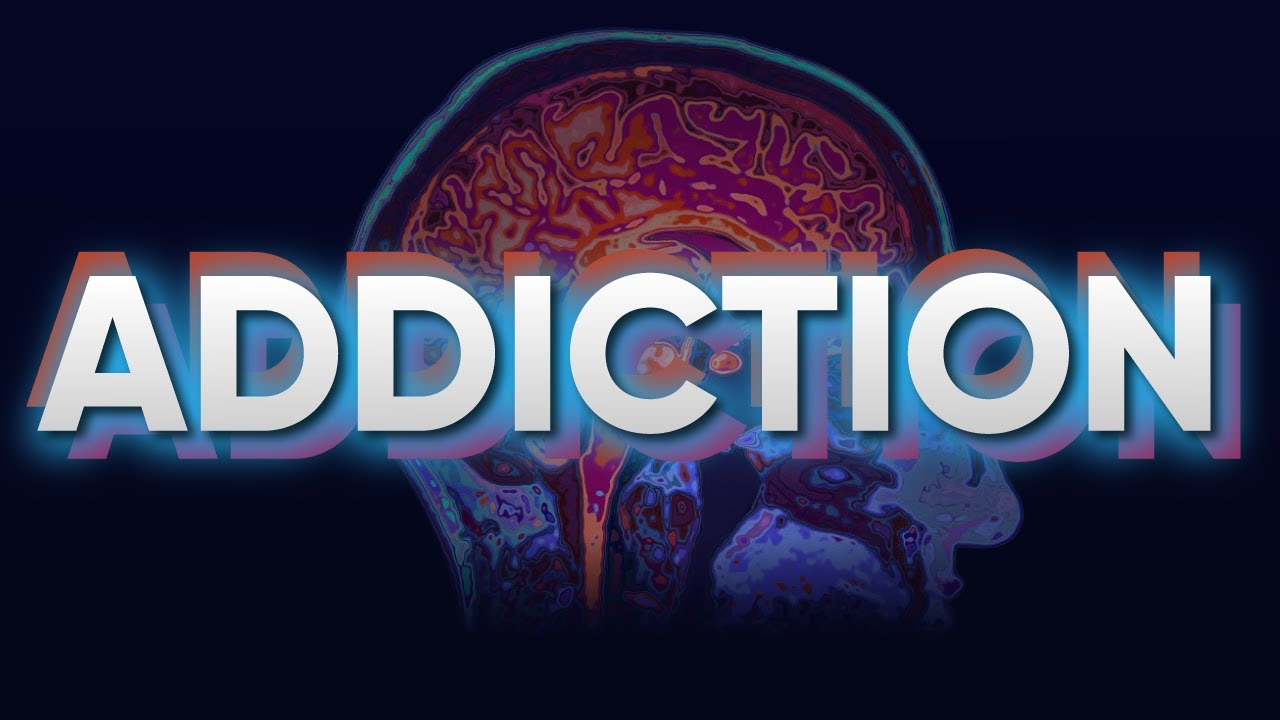Mechanism of Drug Addiction in the Brain, Animation.
Summary
TLDRThe script explains addiction as a neurological disorder that disrupts the brain's reward system, essential for survival behaviors like eating and socializing. It details how the neurotransmitter dopamine, released during enjoyable activities, creates pleasurable feelings. Drugs of abuse manipulate this system, causing an artificial dopamine surge that leads to overstimulation and desensitization, reordering life priorities around drug use and potentially resulting in overdose.
Takeaways
- 🧠 Addiction is a neurological disorder that impacts the brain's reward system.
- 🍽️ The reward system naturally reinforces behaviors like eating and social interaction for survival.
- 💊 Drugs of abuse exploit the reward system, transforming natural needs into drug cravings.
- 🌐 The brain uses neurons and neurotransmitters like dopamine for communication.
- 🚀 Action potentials in neurons trigger neurotransmitter release for signal transmission.
- 🌈 The VTA to limbic system and frontal cortex pathway is a major reward pathway in the brain.
- 🎉 Dopamine release in the synaptic space is linked to pleasurable feelings and rewards.
- 🔄 Dopamine-transporter clears dopamine from the synapse to prevent overstimulation.
- 🆚 Most drugs of abuse increase dopamine levels, causing overstimulation and intense euphoria.
- 🔄 Cocaine and methamphetamine block dopamine re-uptake, leading to abnormal dopamine buildup.
- 🔄 Repeated drug use desensitizes the reward system, making normal stimuli less rewarding.
- ⚠️ Over time, higher drug doses may be needed to achieve the same effect, risking overdose.
Q & A
What is addiction classified as, according to the script?
-Addiction is classified as a neurological disorder that affects the reward system in the brain.
What role does the reward system play in a healthy person?
-In a healthy person, the reward system reinforces important behaviors essential for survival, such as feeding, sexual activity, and social interaction, by making these activities pleasurable and memorable.
How do drugs of abuse affect the reward system?
-Drugs of abuse hijack the reward system, turning a person's natural needs into drug needs, thus altering the normal functioning of the reward pathways.
What are neurotransmitters and how do they function in communication between neurons?
-Neurotransmitters are chemical messages that allow neurons to communicate. When a neuron is stimulated, it generates an electrical impulse that triggers the release of a neurotransmitter into the synaptic cleft, where it binds to a receptor on a neighboring neuron, transmitting the signal.
What is the role of dopamine in the brain's reward pathways?
-Dopamine is a neurotransmitter that plays a major role in the reward pathways. It is transmitted from the ventral tegmental area (VTA) to the limbic system and frontal cortex, and its release is associated with pleasurable feelings and rewarding effects.
How do most drugs of abuse affect dopamine levels in the brain?
-Most drugs of abuse increase the level of dopamine in the reward pathway, either by indirectly exciting dopamine-producing neurons or by blocking the re-uptake of dopamine, leading to an accumulation of dopamine in the synapse.
What is the mechanism by which cocaine affects dopamine levels?
-Cocaine acts by binding to the dopamine-transporter, blocking the re-uptake of dopamine, which results in an increased level of dopamine in the synapse.
How does methamphetamine differ from cocaine in its effect on dopamine?
-While methamphetamine, like cocaine, blocks the removal of dopamine, it also enters the transmitting neuron and triggers dopamine release even in the absence of action potentials, leading to an even greater accumulation of dopamine.
What is the consequence of the continuous overstimulation of receiving neurons by excessive dopamine?
-Continuous overstimulation by excessive dopamine causes the reward system to become desensitized, leading to a decreased response to everyday stimuli and an increased dependence on the drug for reward.
Why might a person need higher doses of a drug over time to achieve the same pleasurable effect?
-Repeated exposures to dopamine surges caused by drugs can desensitize the reward system, requiring higher doses of the drug to achieve the same pleasurable effect due to the system's reduced sensitivity.
What is the ultimate risk associated with the pursuit of higher drug doses to achieve the same effect?
-The pursuit of higher drug doses to achieve the same pleasurable effect can ultimately lead to drug overdose, posing a significant risk to the individual's health and well-being.
Outlines

Cette section est réservée aux utilisateurs payants. Améliorez votre compte pour accéder à cette section.
Améliorer maintenantMindmap

Cette section est réservée aux utilisateurs payants. Améliorez votre compte pour accéder à cette section.
Améliorer maintenantKeywords

Cette section est réservée aux utilisateurs payants. Améliorez votre compte pour accéder à cette section.
Améliorer maintenantHighlights

Cette section est réservée aux utilisateurs payants. Améliorez votre compte pour accéder à cette section.
Améliorer maintenantTranscripts

Cette section est réservée aux utilisateurs payants. Améliorez votre compte pour accéder à cette section.
Améliorer maintenantVoir Plus de Vidéos Connexes

The Science of Addiction and The Brain

Why Our Brains Want to Be Addicted | The Chemistry of Addiction

Waarom zijn drugs zo verslavend? (3/5)

HBO The Science of Relapse

La Dipendenza dai Videogiochi: Come Riconoscerla, Come Funziona e Come Uscirne | #TELOSPIEGO

Cómo el azúcar afecta el cerebro - Nicole Avena
5.0 / 5 (0 votes)
